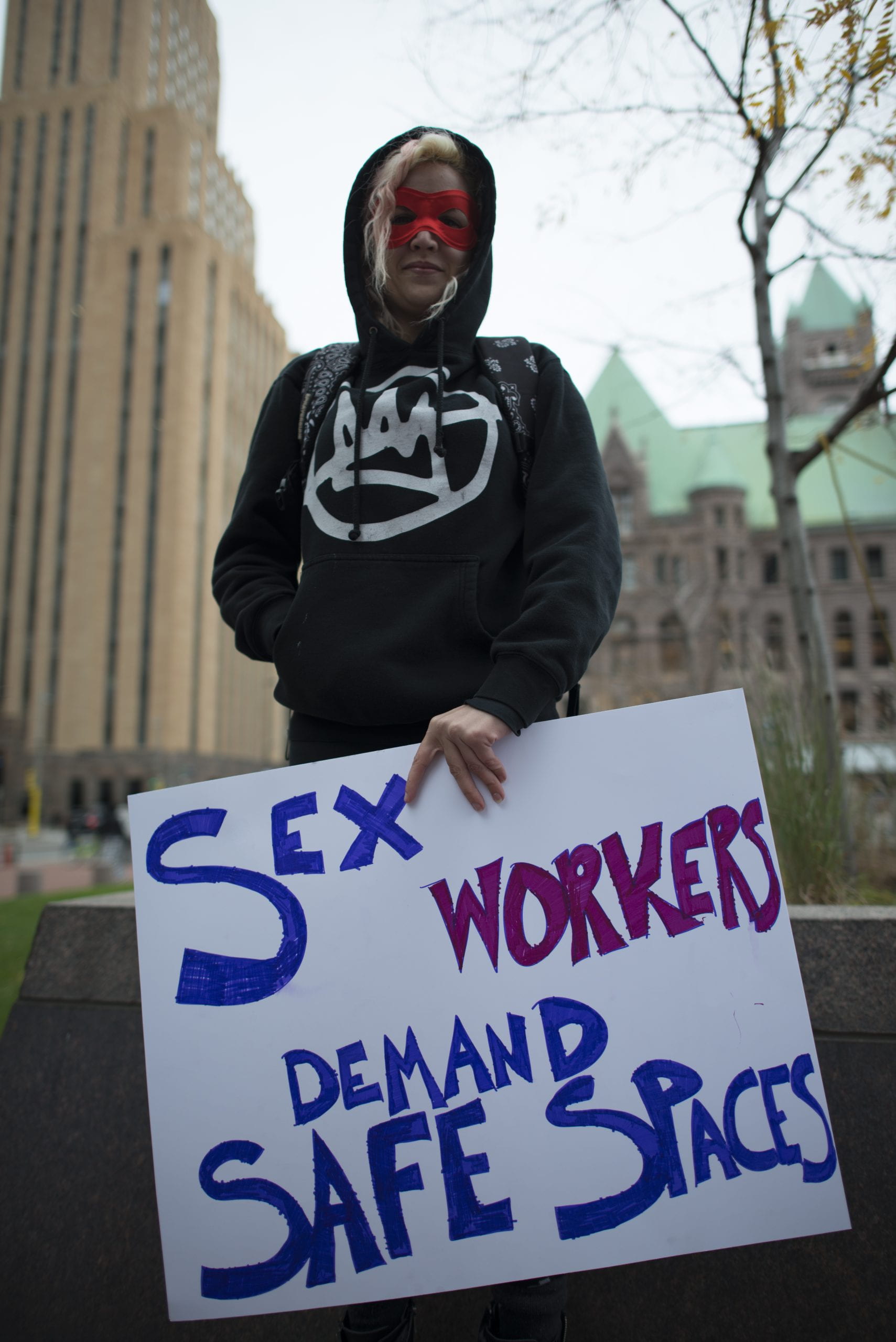
Different human rights groups support or have called for the decriminalization of sex work. Some of which include Amnesty International, World Health Organization, UNAIDS, International Labour Organization, the Global Alliance Against Trafficking in Women, the Global Network of Sex Work Projects, the Global Commission on HIV and the Law, Human Rights Watch, the Open Society Foundations, and Anti-Slavery International.
Picking on one, the Human Rights Watch supports the full decriminalization of consensual adult sex work in support and defense of human rights relating to personal autonomy and privacy as, “A government should not be telling consenting adults whom they can have sexual relations with and on what terms.” Joining 61 other organizations, they recently advocated for a bill that would decriminalize sex work in Washington, DC. This Community Safety and Health Amendment Act intends to repeal statutes that criminalize adults who voluntarily and consensually engage in sexual exchange, while it upholds and defends the legislature which prohibits sex trafficking. The HRW affirms that adult consensual sexual activity may be covered by the concept of privacy, rejecting the idea that criminalization was a protective measure against HIV and STIs, and conveying that it was more likely to drive a vulnerable population underground.
However, the demands of these organizations and supporters of sex workers have surfaced controversy around sexuality, health, economics, and morality. Often the idea of sex work may be tied to or conflated with sex trafficking, child sex abuse, and rape. Open Society Foundation simply defines sex workers as “adults who receive money or goods in exchange for consensual sexual services or erotic performances, either regularly or occasionally.” Sex work encompasses a wide range of professions and activities which include the trade of some form of sexual activity, performance, or service for a client to a number of fans for some kind of payment (including prostitution, pornography, stripping, and other forms of commercial sex). It is clearly separated from those services that utilize “the threat or use of force, abduction, deception, or other forms of coercion for the purpose of exploitation”. Decriminalizing sex work would call for the “removal of criminal and administrative penalties that apply specifically to sex work, creating an enabling environment for sex workers’ health and safety.” Amnesty International expands on these definitions in this report.
Many members of society view sex work as immoral or degrading to women, arguing that sex work is inherently exploitative of women, even if these workers find it profitable or empowering- even simply as the power to creatively express one’s sexuality. When we think of sex workers, we tend to assume they were forced into it or assume a desperate narrative with no other options. Then, maybe, we judge their appearance while tying it to their worth or a fantasized idea of sex workers opposed to the ordinariness we associate with other professions and community members. A simple argument says that, like any profession, there are extremely different motivations to pursue these professions and, in the end, it’s a job or choice of work with its own pros and cons for each lifestyle (affording many lifestyles). Also, anyone and any personality can be a sex worker.
People enter and remain in this work for a multitude of reasons creating each individual experience of sex work; however, many face the same response and abuse in the workplace or trade. Owning to the stigma associated with the profession, not many can come out and say they are a sex worker. They must fight to be recognized beyond the stigma or continue to repress or hide their daily lives from their community or society. Sex workers report extreme violence and harassment from clients, managers, police and society and even more cannot report these violences, facing incrimination or even incarceration. Ironically, laws on sex work undermine governments’ own efforts to reduce high rates of violence against women and reduce rates of HIV infection in sex worker populations.
Repressive policing not only further marginalizes sex workers as a whole, but it also reinforces what it promises to remove as it exposes sex workers to different abuses and exploitation by police or law enforcement officials who may arrest, harass, physically or verbally abuse, extort bribes and sexual services, or deny protection to sex workers avoiding the eyes of the law. Some sex work may be illegal because it is viewed as immoral and degrading, but people governed by these laws do not share the same moral beliefs. As police fail to act on sex workers’ reports of crimes, or blame and arrest sex workers themselves, offenders may operate with impunity while sex workers are discouraged from reporting to the police in the future. Then there is the financial toll of criminalization as repeating fines or arrests push some further into poverty. People may be forced to keep selling sex as potential employers will not hire those with a criminal record. Also, if the need for money found some sex workers in the streets, how will fines deter the work?
The work entails forming relationships with a wide range of clients at different levels of intimacy. Unfortunately, sex work offers comfort to predators, or those who mean harm, who also understand and exploit the workers paralleling relationship with police. Working in isolation, workers’ lives are threatened as they avoid the police and are denied these protections in their workplace and, off the hook, predators continue to harm more even those outside of the sex trade. Facing arrest or prosecution themselves, any client may protect themselves from blocked numbers leaving workers in the dark with no evidence of whom they are dealing with, surrendering that safety. Some laws advocate helping sex workers by removing the option of work as it criminalizes only those who buy sex. Now, to incentivize clients and income, workers may be forced to drop prices, offer more risky services, or reach out to potentially abusive third-party management.

Decriminalizing and regulating the work of sex workers would allow them the right to choose their clients and negotiating power or power to cease the service when they feel uncomfortable or unsafe. Criminalization, or the threat of it, complicates and weakens workers’ power to negotiate terms with their clients or collaborate with others for safety. So, for example, it may increase the chance for workers to engage in sex with clients without a condom (which may be used as evidence of the crime). Although variable in different contexts, in low and middle-income countries on average, sex workers are 13 times more at risk of HIV, compared to women of reproductive age (age 15 to 49), so their ability to negotiate condom use is important.
According to a study led by the London School of Hygiene & Tropical Medicine and published by the American Association for the Advancement of Science, sex workers who had been exposed to repressive policing had a three times higher chance of experiencing sexual or physical violence by anyone, including clients and partners. They were also twice as likely to have Sexual Transmitted Infections than those who avoided repressive policing.
In order to be protected from exploitation by third party managers and dangerous clients, to be informed on sexual transmitted infection and other health concerns or vulnerabilities, to be able to unionize and self-manage, and to be able to reach out to law enforcement, sex work should be regulated by the same occupational safety and health regulations that benefit workers in other labor industries. Dedicated efforts must consider the elevated or unique risks, vulnerabilities, and intersectional stigmas surrounding different sex workers, including men, transgender, and other gender identities and portions to improve health outcomes and human rights. Wider political actions are needed to address inequalities, stigma, and exclusion or marginalization that sex workers face even past the criminal justice system to health, housing, employment, education, domestic abuses, etc.
We are faced with opposing or contradictory narratives of the sex work experience, but we have chosen some to represent the entire concept especially those tailored to our own feelings of sex and commerce without concern or consideration of those even more immediately affected. The conversation of sex work needs to open up to understand and share the message to all that the labor itself is the commodity, not the laborer and it requires workers more considerate rights and regulations. If sex work is legally accepted with due rights and respect, it can become something that benefits- even especially vulnerable or marginalized- women and humanity.
Additional Sources:

